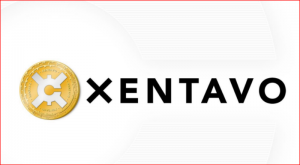
The World Bank characterizes small states as countries or nations with a small population (less than 1.5 million people), limited human capital and a confined or isolated land area. There are many of these in exposed areas of the world. Think of the Caribbean, Indian and Pacific Oceans.
The problem XENTAVO seeks to address
Small states find it challenging to prosper at optimal efficiency and effectiveness. There is no traditional development model that works for this diverse group of countries or nations. With limited economic developmental options, and faced with unforeseeable tsunami-like effects – such as a volatile markets – small states confront the need to avoid added risk when applying monetary systems and policies.
When it comes to Sustainable Development Goals, small states face additional challenges, for example:
- the provision of public services across a small, scattered population can prove costly (this applies to educational programs, access to proper medical treatment, and much more)
- trade is often more difficult for small states because trading costs are often are higher than average trading costs (which may cause consumers to divert trade elsewhere)
- many small island states are vulnerable to the impact of global climate changes and/or natural disasters
- small states rely heavily on international finance to satisfy their financial obligations
- the currencies of small states are often tethered to the US$; this too often obliges currency boards to rely on flexible wages and flexible price points to absorb market shocks
- most small states are unable to cover the financial costs associated with major national disasters (such as hurricanes, tsunamis, flooding, earthquakes, volcanoes and more).
Disaster impacts
Last year (2017) was devastating to many of the small states located in the Caribbean. In particular, Hurricane Irma and Hurricane Maria caused significant structural and financial distress. In Dominica alone, the 2017 hurricane season resulted in damage which exceeded 200% of it GDP. Puerto Rico’s found its infrastructure wiped out, then unemployment soared as the island’s economy reeled from the ‘Category 4’ hit. Damaged infrastructure means closed hotels. No income means more people leave the island and/or higher unemployment which produces less tax revenue.
When distressed businesses remain closed, they cannot generate income. Sustained unemployment rates exacerbate and prolong financial and economic issues for small countries.
While small countries must become masters in solving problems related to their recovery and growth, back-to-back large magnitude natural disasters often force appeal for support from other countries, international charitable organizations and private institutions. This is not ideal.
The XENTAVO solution
At the heart of the XENTAVO platform is cryptocurrency, in the form of a local currency. This cryptocurrency is blockchain-based, which provides a digitized, decentralized, public ledger of all transactions executed on the platform.
Possessing a sovereign cryptocurrency, according to XENTAVO, empowers small nations to transfer money to another account within the system while observing Know Your Customer (KYC) and Anti-Money Laundering (AML) procedures. Furthermore, the XENTAVO platform enables an adopting country to access its funds within minutes. Apply the implications to a small state hit by a natural disaster.
In effect, XENTAVO proposes a white label blockchain framework to establish sovereign digital solutions and cryptocurrencies for exposed small states. XENTAVO aspiration is to implement a Sovereign Digital Cash System. Such a system would enable small nations to:
- run their nation’s monetary policy on a digital basis
- provide and maintain a local efficient and sustainable payments system
- supervise and regulate their own national financial operations.
XENTAVO Digital Cash System
The XENTAVO Digital Cash System claims to offer the following advantages:
- sovereignty: each country’s government and/or Central Bank directly controls its own digital cash system
- tradability: under the system, all balances are internationally tradable 24 hours a day
- availability: the digital cash system is available 24 hours a day, seven days a week (assuming electricity is available)
- security: the secure digital currency platform has cryptographic security, protecting balances even during economic crises, meltdowns or even electricity failures
- scalability: a digital framework can provide opportunities to scale up access to local and even global financial services
- inclusivity: digitising financial systems reduces costs and physical barriers which, in turn promotes financial inclusion initiatives
- modularity: the XENTAVO digital platform implement existing and new fiscal policy and management applications.
In addition, customisable turnkey features can add to the digital currency platform’s capability. Potential modules include those for:
- foreign currency exchange
- banking, such as loans based on smart contracts.
- access to investments and subsidies.
Enterprise Times: what does this mean
Prima facie this is an elegant solution to a recurring problem. With the XENTAVO platform the possibility emerges for small states to assist themselves regain their path to independence and sustained growth, with blockchain technology performing much of the heavy lifting.
What is less clear, to Enterprise Times, is how this should work. Does a small state implement this in ‘good times’ – when presumably its capabilities are unnecessary? This demands a leap of faith that all will work as anticipated.
Or can a state implement it after a disaster? Might this be akin to the rapid response Télécoms Sans Frontières emergency cellular phone system?
The latter would be the most useful. But it is hard to see how or where the ‘starting balances’ would come from to jump start a post-disaster digital currency.
Conceptually the XENTAVO platform addresses real issues. Practically, less is clear. Plus there are two fundamental caveats:
- is electricity available to run a service
- cryptocurrencies, even backed by a nation state, remain unproven.
























